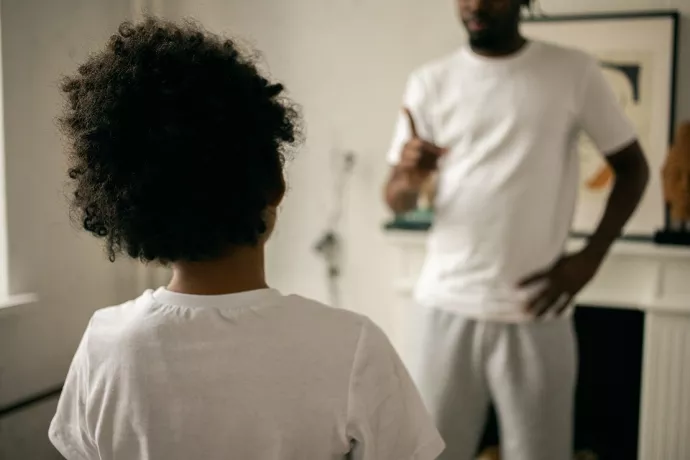
UTM study reveals new insights on impact of disciplining children
I once dated a man with two daughters, ages 5 and 8, and when they “misbehaved,” he sentenced them to stand in the “naughty corner.”
I wasn’t a fan of the approach. It felt like they were being shamed. And no constructive conversation was happening about the apparent misdeed. I told him so, and he eventually agreed with me and abandoned the practice.
And yet, as the mother of a now 15-year-old boy, I know I haven’t always gotten disciplining right. Across history and cultures, who among us parents have? And is there anything new to learn about this age-old subject?
As it turns out, there is, says parenting and child development researcher Melis Yavuz-Müren.
A post-doctoral psychology fellow at U of T Mississauga’s Laboratory for Social-Emotional development and Intervention Lab, Yavuz-Müren is lead author of the new study, “Parental Discipline, Child Inhibitory Control and Prosocial Behaviors: The Indirect Relations via Child Sympathy” (January 2022, Journal of Child and Family Studies).
For her study, Yavuz-Müren turned to previously completed lab research—questionnaires of 301 parents of boys and girls ages 4, 6 and 8 on their discipline methods, and their child’s prosocial behaviours and levels of sympathy and temperament, or inhibitory control (ability to suppress automatic reactions). It’s the first study to examine the impact of four different parental discipline practices on kids of three different ages in early/middle childhood.
From this data, she sought to glean insights on the efficacy of four disciplinary techniques. Power assertion: I’m in charge, and if you misbehave, I will shout or spank you. Love withdrawal makes receiving love contingent on behaving appropriately. There was also disappointment—showing displeasure with a child’s inappropriate behaviour. And finally, other-oriented induction, explaining or reasoning to link a child’s behaviour to another’s distress.
Among the main findings was that other-oriented induction was related to promoting prosocial behaviour in children of all three ages. This technique works because it elucidates the impact of the child’s behaviour on the outcomes and emotions of others, which helps trigger a sympathetic reaction.
“In other-oriented induction, parents try to give their child an understanding of the feelings of the other person impacted by their behaviour. For example, ‘Johnny is crying, and the reason is you hit him,’” Yavuz-Müren says. “It is a constructive approach for getting a child to show more sympathy, which helps promote prosocial behaviour.”
Showing disappointment in “bad” behaviour was found to have an equally effective result, but only with kids aged 6 and 8. Yavuz-Müren says this is because four-year-olds aren’t cognitively ready to understand the message being conveyed by a disapproving parent. Power assertion and love withdrawal were found to be useless disciplinary tactics for prompting sympathy and prosocial behaviour.
“These negative practices may achieve what parents want at that moment, because the child is fearful and so will do what you want, but in the long run, it leads to more negative outcomes, because a child can feel resentful of their parent and become less willing to listen,” she says.
Another nugget to emerge from this study is that, across all the age groups, kids with better control over their temperaments displayed more positive social behaviours and higher sympathy, but the effect was somewhat less pronounced in eight year olds. The study notes this may be because an eight-year-old’s inhibitory control is more developed, and so less influential on their behaviour. It’s an insight Yavuz-Müren says can help parents be more thoughtful in their disciplining practices.
Yavuz-Müren shared her research findings at the 2021 Society for Research in Child Development conference. Next, she will build on this study by investigating how a positive relationship between a parent and child can improve the efficacy of the other-oriented induction technique.
“Discipline is something we all have to do with children, and children need to learn from us. It can be done in a constructive way versus a negative way,” she says. “We should aim to socialize our children as kind individuals and embed positive values to create a more positive society.”
